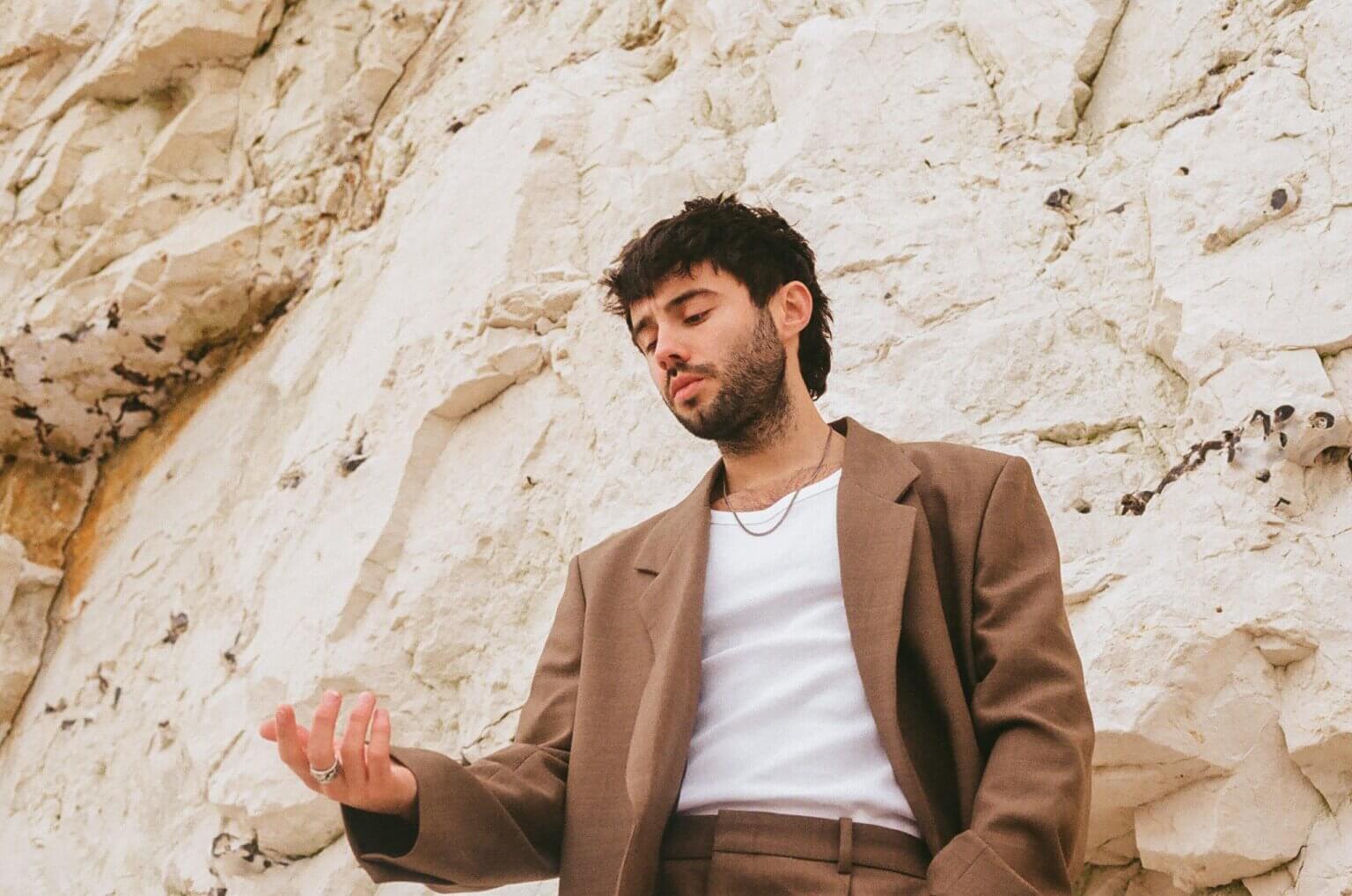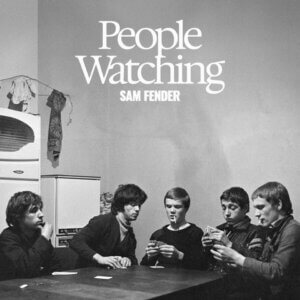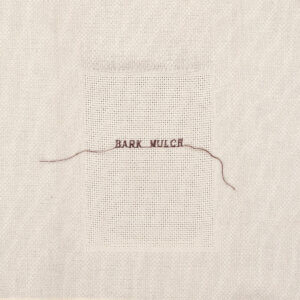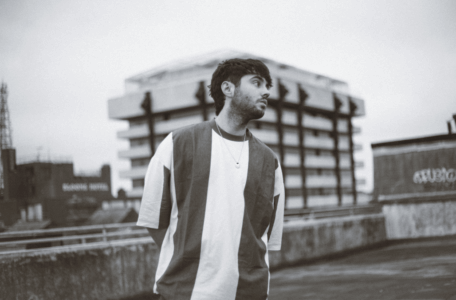Somebody’s Child Is Evolving With Every Album

Somebody’s Child’s sound demonstrates maturity in forthcoming second album After a busy 2024 which saw Somebody’s Child opening for The War on Drugs, Bloc Party and Kings of Leon, the Irish outfit, fronted by Cian Godfrey, no doubt got a taste for playing to large and enthusiastic crowds. Their forthcoming second album, When Youth Fades Away–due to be released on March 28th via Frenchkiss Records–is packed with vast reaching synth-laced rock numbers designed to fill arenas.
Often heralding LCD Soundsystem’s infectious riffs paired with a Sam Fender sensibility in their soaring guitar lines. The pristine production, achieved with Somebody’s Child’s collaboration with Grammy Award winning producer Peter Katis (The National, Interpol), is electrifying and extremely inviting to audiences. Godfrey spoke to Northern Transmissions about entering into the studio with fresh perspectives, his challenging relationship with music and finding acceptance in ageing.
NT: Hey Cian, you’re getting ready for Somebody’s Child’s second record, When Youth Fades Away to come out on March 28th. How was it returning to a blank page when you started writing new songs following the success of the debut LP? In terms of making sure you were developing your sound, did you find that aspect challenging?
Cian Godfrey: Yeah, big time. What you said about the blank page was actually an important thing for us. I keep going on about this, but I think we’d been creatively injured through whatever residual feelings we all experienced after COVID and the time that was stolen from us. We took a while and took some separation from writing and came back to it with what we hoped was a fresh palette and perspective.
It was really important for us to step up. We wrote our second album in 2022 and the first album came out in 2023, so to be honest, [When Youth Fades Away] feels like more of a third album for us because there was an unreleased second album. So, in a way, it feels like this has been two steps forward and we wanted to reflect that in the music because we’ve grown up quite a lot since, just by the nature of it, the first album. We wanted to release some of the songs that were already out, like “Jungle” is now four years old and it was on our first album. So, we couldn’t really relate to those songs by the time that they were out. It was really important for us to, as I say, take two steps forward and not look back when we were doing so.
The practical approach that we took was to stop listening to music altogether; to give that separation and try to form a new palette almost. From that, we would re-explore certain types of music. The exercise was to eliminate any music that we felt could hinder our own self-discovery within the new songs. That meant, you know, cutting out most things, not just everything from the last 20 years, and only listening to artists that we could never hope to try and sound like or try to emulate in any way. And if we did, it would never sound anything like them. That was really the exercise and having those limitations for the first time ever in our music, I think that’s just by virtue of now having reached 10,000 hours and having done everything, we had exhausted all avenues creatively. At least, we felt so. It was time to start restricting rather than just opening up. We tried to explore as much as possible and fall into different niches. But once you’ve tried to listen to every genre out there, you then need to decide which ones are the ones you want to take from. I guess you could say it was a much more educated approach compared to when we made the first album, which, for all the right reasons, is the charm of what we were up to that point. This album, however, requires thought when you go back in. The concept, which began the title When Youth Fades Away, determined the next kind of six months for us.
NT: I read that you had restricted a lot of the music that you listened to while recording. How was that time for you, though? Did you miss listening to music and having it as a source of escapismwhen you weren’t in the studio or to be able to go to a particular artist when you were stuck on particular songs? How did that period of restriction impact your relationship with music?
Cian Godfrey: It’s a tricky one because my relationship with music is funny. I don’t think I have that great of a relationship with listening to music, to be honest. I think that’s tainted from the fact that I’m always thinking of it from the angle of ‘This is my career now’, which definitely limits my ability to just get lost in it. So, it was quite a nice break for me actually to stop listening because at some point it feels forced. You listen to music that maybe you don’t naturally like and you try to force yourself to like because, you know, of the direction you’re maybe trying to go, at that point. To really cleanse the palette, it’s almost like taking a bite of ginger before your sushi, you stop for a second to really think rather than be on this constant treadmill of new music that you’re always exposed to nowadays on Spotify with endless playlists and songs end but then something immediately plays. I think there’s a lot to be said for the silence within that space. You know, there is a benefit to having gaps! What is music without the gaps in between, you know? Having that break was actually really rewarding.
When we came back to it, I think we all had completely different perspectives. We were all the better for it, I think. And, in doing it, we achieved something that I can only describe as pure creative fulfillment which is something that I’ve always chased and hopefully that’s reflected in the album.
NT: For this album, you travelled to Connecticut to work with Peter Katis. Had he been a producer that you specifically wanted to work with for this album?
Cian Godfrey: Not necessarily, but the opportunity came up because our manager has another artist who had collaborated with Peter and we saw the bands he had previously worked with and were happy to work with him. Initially, we struggled to envision what the album would sound like. It was almost like when that opportunity came, the vision started clearing-up and coming together for everyone. Being able to envision the place where we were going to record became quite a North Pole for the album. I think the album sounds a little bit more American than British, which I feel embodies the feel of the first album because it was recorded in the UK.
It became a different beast sonically and that opened-up a lot of different avenues for us in terms of developing the sound and trying something new.
NT: Having worked with two different producers, Peter on your forthcoming release and Mikko Gordon on the debut, what were some of the really valuable things you learned from their different approaches that you think you’ll take into album three?
Cian Godfrey: They’re both equally amazing in what they do. I think what I find most impressive with producers all around is their ability to manage people. That’s not just what you’d expect in terms of the ego sense in the studio, but in a sense of just knowing when to push buttons on people and, most importantly, when to stop doing that. Sometimes people need a little bit longer to figure out how they want to express themselves. It’s actually the language that they, as producers, use which is crafted in a way to encourage people and it’s so specific to one member of the band. Say, if someone is more nervous playing in a studio, you have to use a completely different language to someone else who might need to keep whacking at it. Whereas some people only want to do two takes and that’s it.
Both Mikko and Peter’s abilities to manage the people and time, in general, because you could spend a day on a single guitar line and then you’ve wasted your time so it’s their job to make sure that everything gets done. They were just really, really impressive and so inspiring to work with both of them. I think, as well, being able to travel and live in the studio in Connecticut for three and a half weeks was very special in itself to have the time to bond with the band and watch movies in the evening after a day recording.
NT: The songs across When Youth Fades Away are so vast and textured. When you’re building songs as sonically grand as the ones you did for this album, did you find it difficult to know what was working and how to not overstuff arrangements? What, in that regard, were some of the challenges you faced in the studio and was there a song that presented itself as more of a struggle than others?
Cian Godfrey: Definitely it was a big jump up from the last one in terms of the breadth of the arrangements. For the first album, each of us were given a guitar tone at the beginning and told that’s what you have to use. We wanted that to sound raw, whereas on this one, we had the introduction of a lot more, such as lead lines and we had different types of tones coming in for different players, but also different guitars, too. Which we didn’t do last time. Then, obviously, the introduction of the acoustic guitar and the piano was a huge thing for us because we write a lot on acoustic and piano and we’d never expressed that in our songs before. So now, you have three more really important elements to manage within the arrangement.
Being able to balance that and mix it up and decide when you’re going to record each of the things based on their priorities was, I guess, the challenge. We tried to keep it as minimal as possible where we could, but there was still quite a lot, so it was more about taking things out rather than adding things in. That was ultimately the solution.
In terms of a single song, I think “New Orleans”was one that we originally thought maybe we’d just do a phone voice note because we didn’t think we’d have time to finish that song. We thought that maybe I’d just record something and add some piano. We thought that maybe there’d be a bit of charm to that in itself.
We ended up adding more to it and actually one of the engineers on the record, Kurt, is a drummer. He’s an amazing jazzy, textured drummer who knew about this style of drumming that’s native to New Orleans in how they do it for marches and stuff, it’s like this offbeat rhythm, which we introduced and then built it up and up and up. We ended up getting a full minute and a half song out of what was previously just a twenty-eight second interlude. I suppose it wasn’t much of a challenge, it was actually really fun!
NT: And is there a song in the album from a lyrical perspective that you’re kind of most proud of and how you felt there was like a development in the writing style?
Cian Godfrey: I think throughout the whole record, I loved the idea that we tapped into something that wasn’t entirely based around romance, although everything is based around romance, in a sense. But, on this album it’s not the romance that’s traditional to music. There’s a romance in this kind of nostalgia–even though I don’t actually like that word–or feeling of a moment that’s passing and the inability to grab on to whatever it is you’re trying to feel or do or say. do or to say.
I think that’s exemplified most in “Irish Goodbye”. Also, the song “Life Will Go On” has a really matter of fact style of lyricism as opposed to what we used to do. I think we used to be a bit more jolted, or something. I like to look at lyrics as kind of like a dream. When you’re in a dream and suddenly you’re somewhere else in a different scene but you don’t think about how you got from A to B and you realize that it didn’t make any sense when you woke up! I always thought of lyrics like that. Whereas on this album, I tried to do more matter of fact writing and introduced a comedic element to lyrics, which we’d never tried before and add a lightheartedness. So, yeah, in that sense, I think “Irish Goodbye” is a good one, lyrically. I think it embodies the idea of talking to your younger self and that’s emblematic of the album, as well.
NT: I’m glad you said that because it leads me nicely to one of my last questions. Getting older is very much a recurring theme on the album. There are a few lyrics about turning thirty, was that something you’d been dreading or were you excited to embrace a new decade, a new chapter in your life?
Cian Godfrey: Oh, it fucking hit me hard. I don’t think anyone’s turned 30 as hard as I did. It had a big impact on me. And I think the album, in hindsight, is definitely me coming to terms with that. Since I’ve turned thirty, I’ve definitely gained a new perspective, which will probably inform the beginning of the next album, which I’m starting to get excited to crack into now. But yeah, turning thirty is not for the faint of heart and certainly I’m faint of heart!
NT: Looking back, what would you say were the biggest lessons you learned throughout your 20s?
Cian Godfrey: To be honest, it was me telling myself to just chill out and telling myself things like, ‘You have more time than you think!’. I think as you get older, you develop a sense of having more time and trying to hold on to it. I knew at the time that I wasn’t doing enough to soak it all in and was taking things for granted and the position I was in and I knew I was doing that. I was always on to the next thing.
I think in relinquishing that kind of control over your time, you almost find that the answer lies in the acceptance of that. Acceptance is something that’s so hard to tell someone how to do. It’s just something you experience. I think the album is about that; It’s coming to terms with, but not ever reaching that feeling of acceptance. Hopefully it resonates with people that feel the same way. Ultimately, it’s probably just a thing of confusion in expressing those feelings without coming to any sort of conclusion. I think I might have reached it now so maybe the next album would be all about that.
Pre-order When Youth Fades Away HERE
Latest Reviews
Tracks
Advertisement
Looking for something new to listen to?
Sign up to our all-new newsletter for top-notch reviews, news, videos and playlists.





